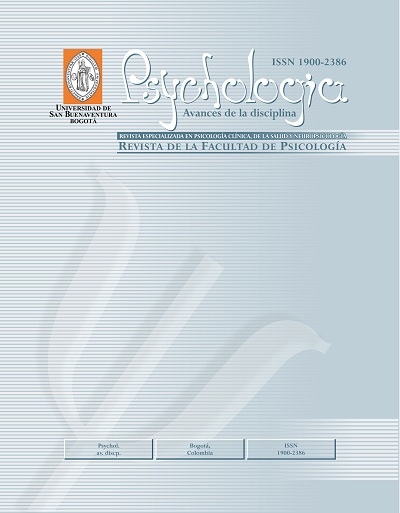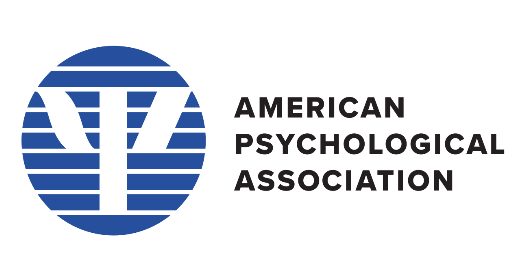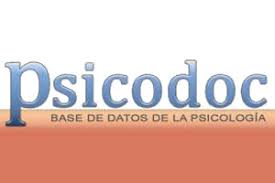This journal provides open, immediate access to its contents, based on the principle that offering the public free access to research helps to promote a higher global exchange of knowledge.
As such, all journal articles are published under a Creative Commons Attribution-NonCommercial-ShareAlike 4.0 International License (CC BY-NC-SA), by which commercial use of the original work or its possible derived works is not allowed, and the distribution thereof must be done with the same license elements regulating the original work.
http://creativecommons.org/licenses/by-nc-sa/4.0/
Abstract
Keywords:
References
Ahola, K., Pulkki-Råback, L., Kouvonen, A., Rossi, H., Aromaa, A., & Lönnqvist, J. (2012). Burnout and behavior-related health risk factors: results from the population-based Finnish health 2000 study. Journal of Occupational and Environmental Medicine, 54(1), 17-22.doi: 10.1097/JOM.0b013e31823ea9d9.
Alfaro-Toloza, P., Olmos-de-Aguilera, R., Fuentealba, M., & Céspedes-González, E. (2014). Síndrome de burnout y factores asociados en estudiantes de una escuela de medicina de Chile. Ciencia e Investigación Medico Estudiantil Latinoamericana, 18(2), 23-26.
Ato, M., López, J., & Benavente, A. (2013). Un sistema de clasificación de los diseños de investigación en psicología. Anales de Psicología, 29(3), 1038-1059.doi: 10.6018/analesps.29.3.178511
Barraza-Macías, A., Ortega-Muñoz. F., & Ortega-Muñoz, M. (2012). Síndrome de burnout en alumnos de los doctorados en educación de Durango (México). Enseñanza e investigación en Psicología, 17(2), 377-386.
Bianchi, R., & Laurent, E. (2015). Emotional information processing in depression and burnout: an eye-tracking study. European Archives of Psychiatry and Clinical Neuroscience, 265(1), 27-34. doi:10.1007/s00406-014-0549-x
Bianchi, R., Schonfeld, I. S., & Laurent, E. (2015). Burnout–depression overlap: A review. Clinical Psychology Review, 36, 28-41. doi:10.1016/j.cpr.2015.01.004
Caballero, C., Abello, R., & Palacio, J. (2006). Burnout, engagement y rendimiento académico entre estudiantes universitarios que trabajan y aquellos que no trabajan. Revista Psicogente, 9(16), 11-27.
Caballero, C., Abello, R., & Palacio, J. (2007). Relación del burnout y el rendimiento académico con la satisfacción a los estudios en estudiantes universitarios. Avances en Psicología Latinoamericana, 25(2), 98-111.
Caballero, C., Bresó, E., & González, O. (2015). Burnout en estudiantes universitarios. Psicología desde el Caribe, 32(3), 424–441. doi: 10.14482/psdc.32.3.6217
Caballero, C., González, O., & Palacio, J. (2015). Relación del burnout y el engagement con depresion, ansiedad y rendimiento académico en estudiantes universitarios. Revista Científica Salud Uninorte, 31(1), 59–69.doi: 10.14482/sun.30.1.1.4309
Caballero, C., Hederich, C., & Palacio, J. (2010). El burnout académico. Delimitación del síndrome y factores asociados con su aparición. Revista Latinoamericana de Psicología, 42 (1), 131-146.
Cabanach, R. G., Gestal, A. J. S., Cervantes, R. F., & Rodríguez, C. F. (2011). Regulación emocional y burnout académico en estudiantes universitarios de Fisioterapia. Revista de Investigación en Educación, 2(9), 7-18.
Caparrós-Caparrós, B., Villar-Hoz, E., Juan-Ferrer, J., & Viñas-Poch, F. (2007). Symptom Check-List-90-R: fiabilidad, datos normativos y estructura factorial en estudiantes universitarios. International Journal of Clinical and Health Psychology, 7(3), 781-794.
Carlotto, M. & Gonçalves, S. (2008). Preditores da Síndrome de Burnout em estudantes universitarios, Pensamiento Psicológico, 4(10), 101-109.
Craiovan, P. M. (2014). Correlations between perfectionism, stress, psychopathological symptoms and burnout in the medical field. Procedia-Social and Behavioral Sciences, 127, 529-533.
Diestel, S., & Schmidt, K. H. (2010). Interactive effects of emotional dissonance and self-control demands on burnout, anxiety, and absenteeism. Journal of Vocational Behavior, 77(3), 412-424.
Erazo, M., & Jiménez, M. (2012). Dimensiones psicopatológicas en estudiantes universitarios. Revista CES Psicología, 5(1), 65-76.
Galbraith, C., & Merrill, G. (2012). Academic and Work-Related Burnout: A Longitudinal Study of Working Undergraduate University Business Students. Journal of College Student Development, 53(3), 453-463. doi:10.1353/csd.2012.0044
Gerber, M., Lang, C., Feldmeth, A. K., Elliot, C., Brand, S., Holsboer-Trachsler, E., & Pühse, U. (2013). Burnout and Mental Health in Swiss Vocational Students: The Moderating Role of Physical Activity. Journal of Research on Adolescence, 25(1), 63–74. doi: 10.1111/jora.12097
Gil-Montes, P. R. (2001). Validez factorial de la adaptación al español del Maslach Burnout Inventory General Survey. Revista de Salud Pública de México, 44. Disponible en Internet: http://www.insp.mx/salud/index.html. Recuperado en septiembre 1 de 2004.
Gorter, R. C., Eijkman, M. A., & Hoogstraten, J. (2000).Burnout and health among Dutch dentists. European Journal of Oral Sciences, 108(4), 261-267.doi: 10.1034/j.1600-0722.2000.108004261.x
Haskell, R., & Burtch, B. (2007).Confronting Homophobia in High School. Academic Exchange Quarterly, 11(4), 187.
Hederich C., & Caballero, C. (2016). Validation of Maslach Burnout Inventory-Student Survey (MBI-SS) in Colombian academic context. CES Psicología, 9(1), 1-15.
Iacovides, A., Fountoulakis, K. N., Kaprinis, S., & Kaprinis, G. (2003).The relationship between job stress, burnout and clinical depression. Journal of Affective Disorders, 75(3), 209-221.doi: 10.1016/S0165-0327(02)00101-5
Jonsdottir, I. H., Rödjer, L., Hadzibajramovic, E., Börjesson, M., & Ahlborg, G. (2010). A prospective study of leisure-time physical activity and mental health in Swedish health care workers and social insurance officers. Preventive Medicine, 51(5), 373-377.
Jonsdottir, I. Rodjer, L. Hadzibajramovic, E., Borjeson, M., & Ahlborg, G. (2010). A prospective study of leisure-time physical activity and mental health in Swedish health care workers and social insure officers. Preventive Medicine, 51, 373-377. doi:10.101016/j.ypmed.2010.07.019.
Lindwall, M., Ljung, T., Hadzibajarmovic, E., & Jonsdotir, I. (2012). Self-reported physical activity and aerobic fitness are differently related to mental health. Mental Health and Physical Activity, 5, 28-34. doi:10.1016/j.mhpa.2011.12.003
Lindwall, M., Ljung, T., Hadžibajramović, E., & Jonsdottir, I. H. (2012). Self-reported physical activity and aerobic fitness are differently related to mental health. Mental Health and Physical Activity, 5(1), 28-34.
Luna-Porta, L., Mayor-Vega, A., & Taype-Rondan, A. (2015). Burnout syndrome in undergraduate medical students: a neglected problem in Peru. Anales de la Facultad de Medicina, 76, 1, 83-84. doi:10.15381/anales.v76i1.11082
Martínez, I., & Marques-Pinto, A. (2005).Burnout en estudiantes universitarios de España y Portugal y su relación con variables académicas. Aletheia, 21, 21-30.
Maslach, C. (2001). What have we learned about burnout and health? Psychology & Health, 16(5), 607-611.doi: 10.1080/08870440108405530
Maslach, C., & Jackson, S. E. (1986). Maslach Burnout Inventory, 2nd Ed. Palo Alto, California: Consulting Psychological Press.
Maslach, C., Schaufeli, W. B., & Leiter, M. P. (2001). Job burnout. Annual Review of Psychology, 52(1), 397-422.doi: 10.1146/annurev.psych.52.1.397.
Melamed, S., Shirom, A., Toker, S., Berliner, S., & Shapira, I. (2006). Burnout and risk of cardiovascular disease: evidence, possible causal paths, and promising research directions. Psychological Bulletin, 132(3), 327. doi:10.1037/0033-2909.132.3.327
Moral, J., González, M. T., & Landero, R. (2011). Tratamiento de la fibromialgia en mujeres y evaluación del burnout en amas de casa. Monterrey, NL México: UANL.
Mota-Pereira, J., Silvero, J., Carvallo, S., Ribero, J. C., Fonte, D., & Ramos, J. (2011). Moderate exercise improvises depression parameters in treatment-resistant patients with major depressive disorder. Journal of Psychiatric Research, 45, 1005-1011.doi:10.1016.j.jpsychires.2011.02.005
Noh, H., Shin, H., & Lee, S. M. (2013). Developmental process of academic burnout among Korean middle school students. Learning and Individual Differences, 28, 82–89. doi:/10.1016/j.lindif.2013.09.014
Palacio, J., Caballero, C., González, O., Gravini, M., & Contreras, K. (2012). Relación del burnout y las estrategias de afrontamiento con el promedio académico en estudiantes universitarios. Universitas Psychologica, 11(2), 535-544.
Párraga, J. (2005). Eficacia del programa I.R.I.S. para reducir el síndrome de burnout y mejorar las disfunciones emocionales en profesionales sanitarios. [Disertación doctoral]. Universidad Extremadura, Extremadura, España.
Pepe-Nakamura, A., Míguez, C., & Arce, R. (2014). Equilibrio Psicológico y Burnout Académico. Revista de Investigación en Educación, 12 (1), 32-39.
Salanova, M. Grau, R., Martínez, I., & Llorens, S. (2004). Facilitadores, Obstáculos, rendimientos académicos relacionados con la satisfacción con los asuntos del estudio. Periódico El País Universal.
Salanova, M., Martínez, I., Bresó, E., Llorens, S., & Grau, R. (2005). Bienestar psicológico en estudiantes universitarios: facilitadores y obstaculizadores del desempeño académico. Anales de Psicología, 21(1), 170-180.
Salmela-Aro, K., & Tynkkynen, L. (2012). Gendered pathways in school burnout among adolescents. Journal of Adolescence, 35(4), 929–939.doi:/10.1016/j.adolescence.2012.01.001
Santes, M., Meléndez, S., Martínez, N., Ramos, I., Preciado, M., & Pando, M. (2009). La salud mental y predisposición a síndrome de burnout en estudiantes de enfermería. Revista Chilena de Salud Pública, 13(1), 23-29.doi:10.5354/0719-5281-2009.656
Schaufeli, W. (2003). Past performance and future perspectives of burnout research. Journal of Industrial Psychology, 29(4), 1-15.doi: 10.4102/sajip.v29i4.127
Schaufeli, W., Martínez, I., Marques-Pinto, A., Salanova, M., & Bakker, A. (2002). Burnout and engagement in university students: A cross-national study. Journal of Cross - Cultural Psychology, 33(5), 464-481.
Shirom, A. (2009). Burnout and health: expanding our knowledge. Stress and Health, 25(4), 281-285. doi: 10.1002/smi.1283
Sosa, E. (2007). Frecuencia de los síntomas del síndrome de burnout en profesionales médicos. Revista Médica de Rosario, 73,12-20.
Tartas, M., Walkiewicz, M., Majkowicz, M., & Budzinski, W. (2011).Psychological factors determining success in a medical career: a 10-year longitudinal study. MedTeach, 33(3), 163-172. doi: 10.3109/0142159X.2011.544795
Toppinen‐Tanner, S., Ahola, K., Koskinen, A., & Väänänen, A. (2009). Burnout predicts hospitalization for mental and cardiovascular disorders: 10‐year prospective results from industrial sector. Stress and Health, 25(4), 287-296.doi: 10.1002/smi.1282
Toppinen-Tanner, S., Kalimo, G.R., & Mutanen, P. (2002).The process of burnout in white-collar and blue‐collar jobs: eight year prospective study of exhaustion. Journal of Organizational Behavior, 23(5), 555-570.doi: 10.1002/job.155
Wang, M.-T., Chow, A., Hofkens, T., & Salmela-Aro, K. (2015).The trajectories of student emotional engagement and school burnout with academic and psychological development: Findings from Finnish adolescents. Learning and Instruction, 36, 57–65. doi:10.1016/j.learninstruc.2014.11.004
Ying, L., Wang, Y., Lin, C., & Chen, C. (2016). Trait resilience moderated the relationships between PTG and adolescent academic burnout in a post-disaster context. Personality and Individual Differences, 90, 108–112. doi:10.1016/j.paid.2015.10.048






















